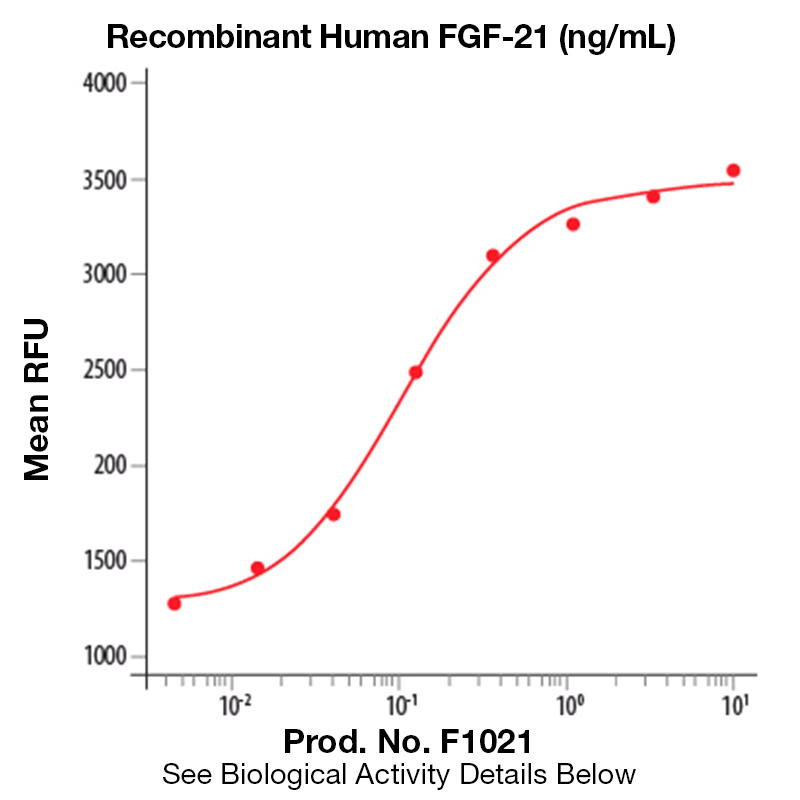Recombinant Human FGF-21
Product Code:
LEI-F1021
LEI-F1021
Host Type:
Human
Human
Regulatory Status:
RUO
RUO
Shipping:
Ambient
Ambient
Storage:
This lyophilized protein is stable for six to twelve months when stored desiccated at -20°C to -70°C. After aseptic reconstitution this protein may be stored at 2°C to 8°C for one month or at -20°C to -70°C in a manual defrost freezer. Avoid Repeated Freeze Thaw Cycles. See Product Insert for exact lot specific storage instructions.
This lyophilized protein is stable for six to twelve months when stored desiccated at -20°C to -70°C. After aseptic reconstitution this protein may be stored at 2°C to 8°C for one month or at -20°C to -70°C in a manual defrost freezer. Avoid Repeated Freeze Thaw Cycles. See Product Insert for exact lot specific storage instructions.
No additional charges, what you see is what you pay! *
| Code | Size | Price |
|---|
| LEI-F1021-25ug | 25 ug | £455.00 |
Quantity:
Prices exclude any Taxes / VAT



